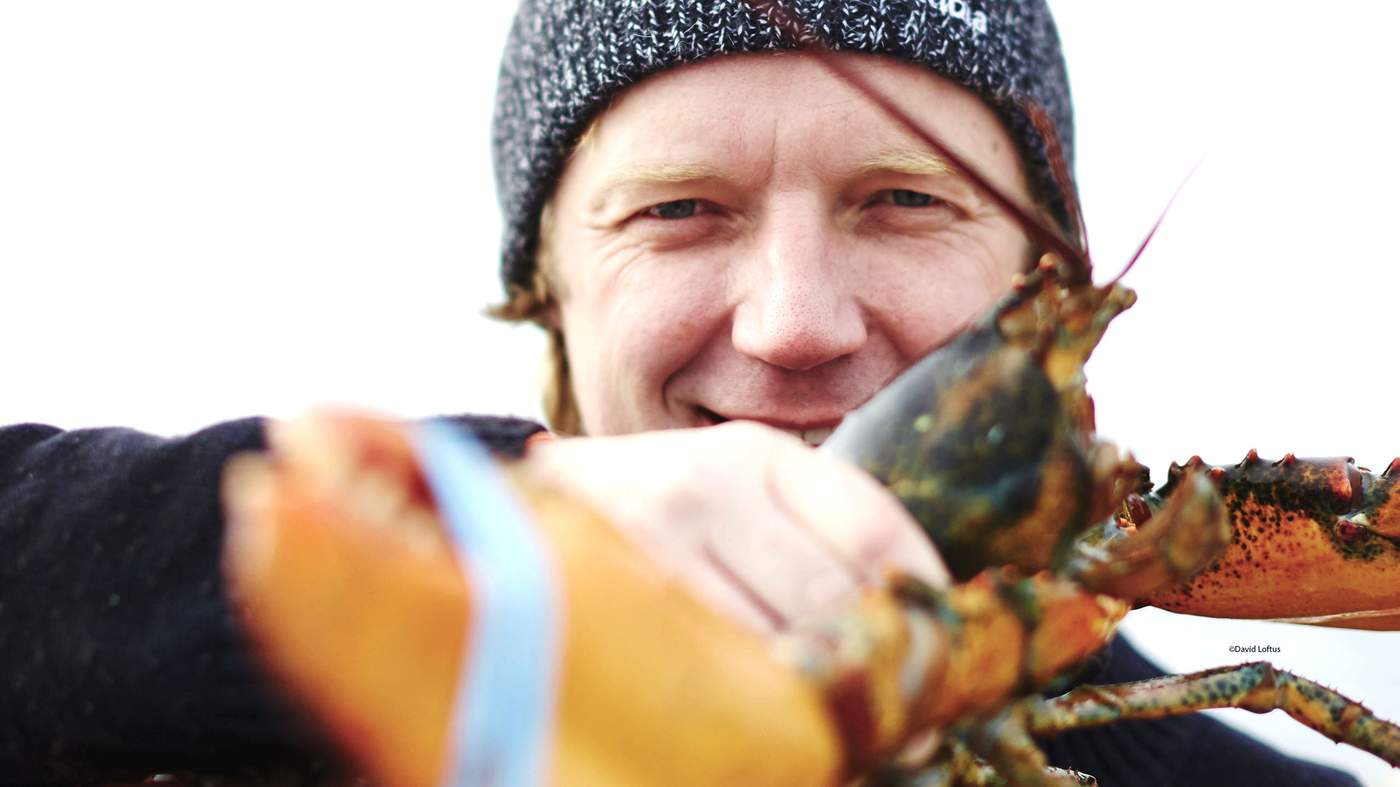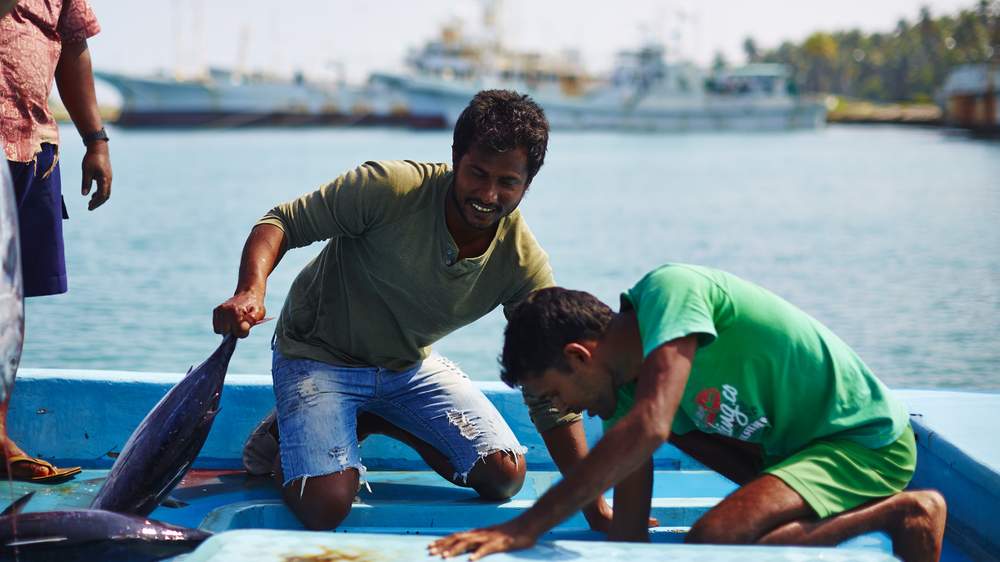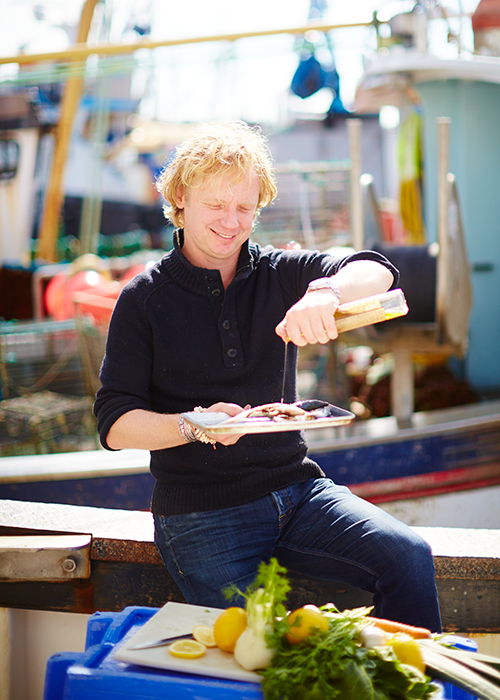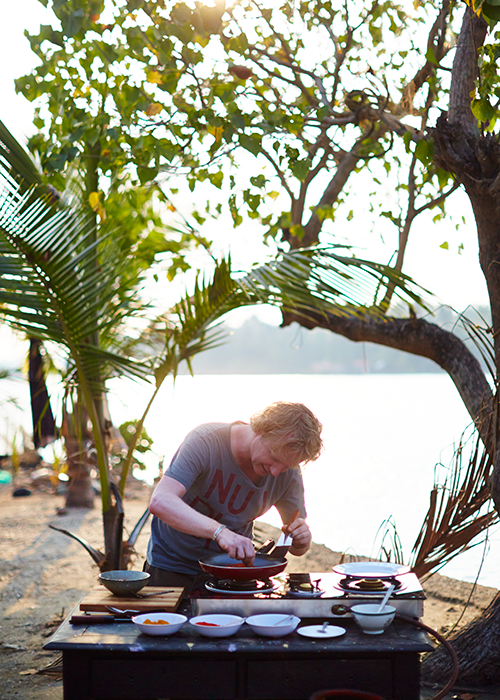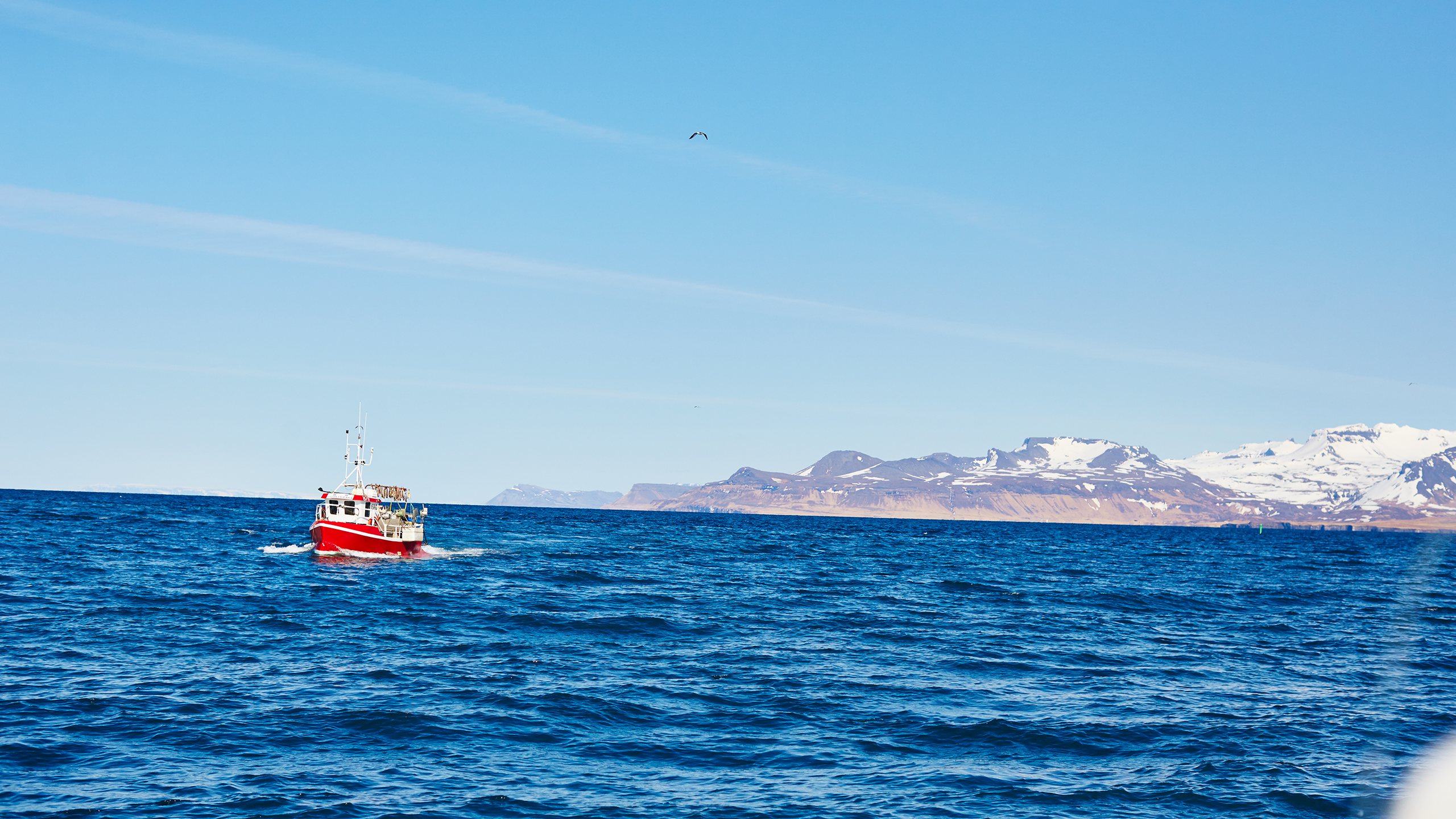For Bart van Olphen, there’s always been something magical about seafood.
Visiting Paris as a boy, he was blown away by the giant seafood platters in the restaurants. Years later, working as a chef in one of the city’s top restaurants, it was the fish dishes that most inspired him.
“I noticed so many species,so many flavours, so many ways to cook it. With a few simple steps, you could create so much. At the same time, it’s natural and pure – there’s a romance behind it. Fish is hunted, just as it has been for thousands of years.”
That passion drove him to open his own chain of fishmongers back in his native Netherlands. But, he admits, his knowledge of fish didn’t extend to the way it was caught.
“I had this romantic idea that it came out of small boats in little fishing ports. I didn’t have much understanding of the difference between sustainable and non-sustainable fisheries.”
Then there’s Kerala in India, where people dive for short-necked clams, and the Maldives, where local fishing boats catch skipjack tuna one by one with a pole and line.
“The Maldives could have decided to scoop out all their tuna for short-term profit with no thought for the future,” Bart points out. “But they didn’t – they made the choice to keep fishing sustainably.”
While Bart is drawn to traditional fishing methods, they aren’t the only way to catch quality seafood sustainably. He points to Iceland – one of the world’s largest fish exporters – as an example.
Can viewers really hope to recreate the dishes Bart cooks in his videos? “Yes, the fish tastes better in the place where it’s caught, just as a bottle of wine tastes better in the vineyard than when you drink it at home,” Bart admits. But he insists that cooking fish is simple: “You need the right utensils, like a non-stick frying pan, and the right ingredients. Keep it as simple as you like – make sure the seafood item is the hero.”
Later this year, seafood lovers can look forward to a new recipe book from Bart, featuring stories and recipes from MSC certified fisheries. Bart has been a champion of sustainable fishing for many years, and we’re delighted that – in our 20th anniversary year – he’s agreed to become our first official global ambassador.
“As a seafood lover, MSC is the natural choice. We have to choose sustainable seafood today – otherwise we won’t have it tomorrow.”
Bart also believes people should be more adventurous in their seafood choices – choosing a wider variety creates a more sustainable balance, rather than piling the pressure on a few popular species.
“Don’t be afraid to ask the fishmonger about different species, different cuts and how to prepare them,” he says.
“We’re used to everything we consume being on demand – but seafood is what the sea gives us, not what we ask for. That feeling when a little boats comes in with the day’s catch – it’s magical.”

